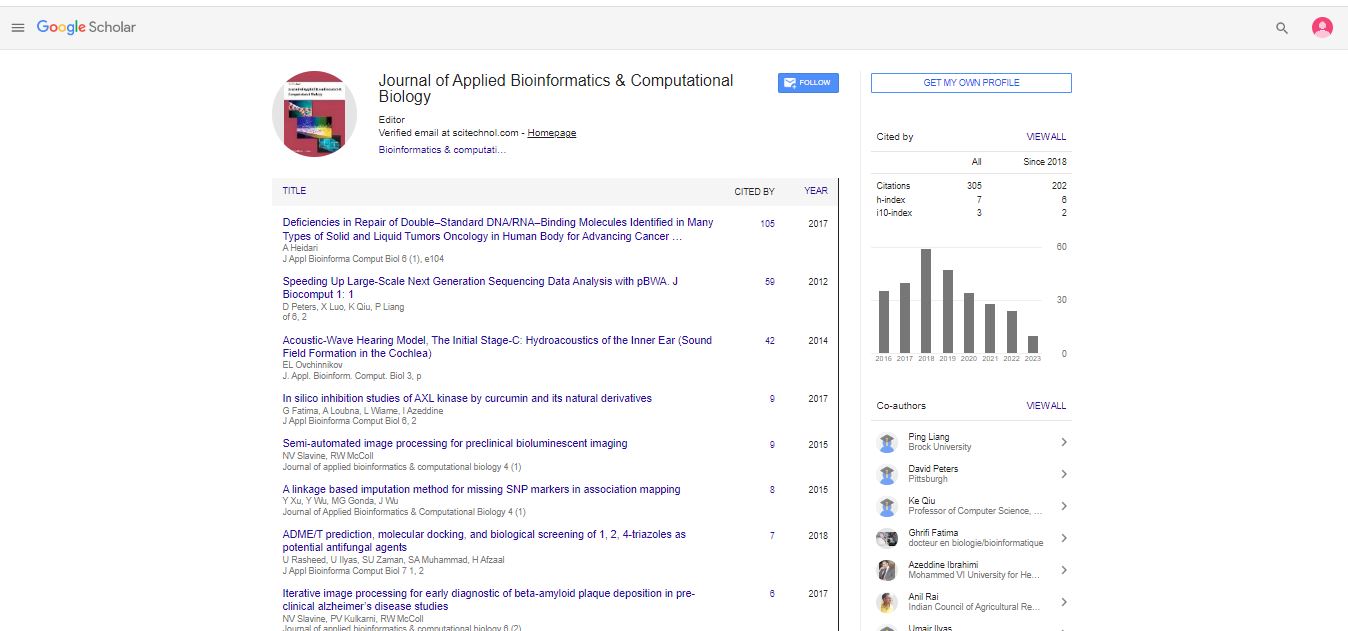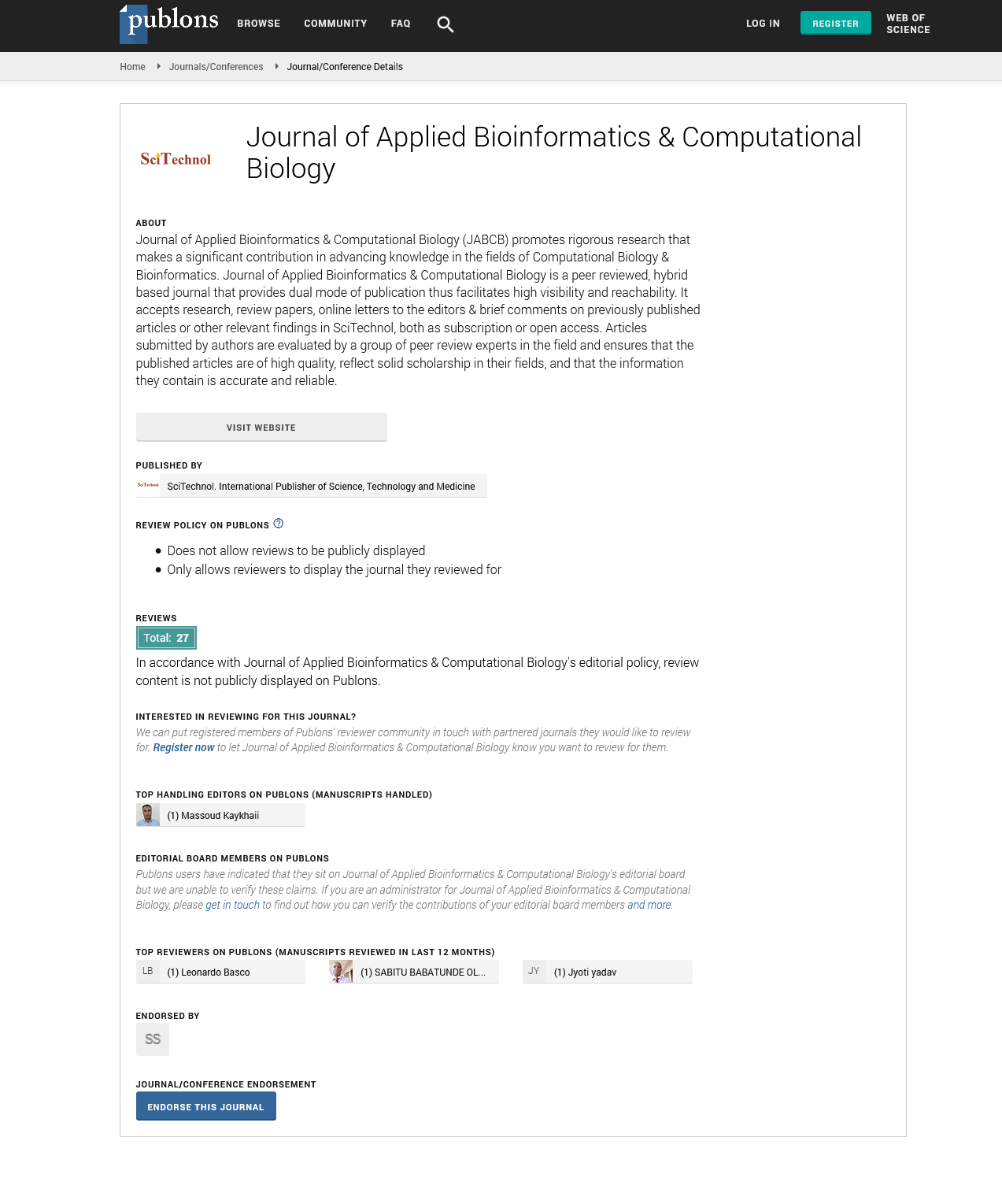Transcriptome analysis to identify disease resistance genes through novel next generation sequencing applications for the predictive medicine
C N Prashantha
REVA University, India
: J Appl Bioinforma Comput Biol
Abstract
Predictive medicine could be a comparatively new subspecialty in health care, however the construct isn’t novel. Within the simplest terms, predictive medicine utilizes specific laboratory and genetic tests to see the chance if a individual can develop a disease. The use of biomarkers has been common within the field on medical specialty to predict repeat of cancer, however currently the aim is to extend the employment of comparable biomarkers to predict the lot of common clinical disorders in lifestyle. Breakthrough within the next generation sequencing (NGS) chances to research genetic variations in humans and their roles in health and disease. NGS offers regional genomic sequencing like whole exome sequencing of coding regions of all genes, as well as whole genome sequencing. RNASeq offers sequencing the complete transcriptomics and ChIP-Seq permits for sequencing the epigenetic architecture of the genome. Identifying genetic variations in each individual may be used to predict disease risk, with the potential to halt or retard the disease progression. NGS also can be used to predict the response to or adverse effects of medication or to calculate appropriate drug dosage. Such a personalized drugs also provides the chance to treat diseases supported the genetic makeup of the patient. Although before selling, the drug safety and efficacy thought to be approved by strict regulations, a drug might not show an expectable efficacy and safety in some people because of genetic variability among people in general. Unraveling the profile of human genomic makeup might give a sensible direction in prescribing medicine to every person; this is often attainable by NGS technologies. The drugs, therefore, would be prescribed in individualized manner for decreasing the adverse effects of the medicine, preventing their excessive consumption. With genomic information, more efficient, cheaper, and safer new medicine may be developed; therefore, Pharmacogenomics plays a central role in personalized medicine.
Biography
E-mail: Prashantha.cn@reva.edu.in
 Spanish
Spanish  Chinese
Chinese  Russian
Russian  German
German  French
French  Japanese
Japanese  Portuguese
Portuguese  Hindi
Hindi 
